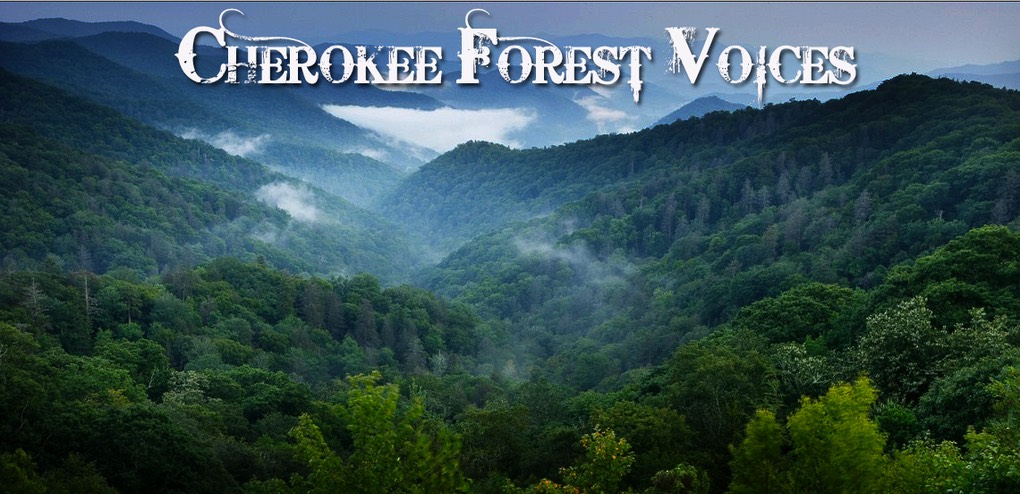
Action Alert!
Press Release from the Southern Environmental Law Center
For Immediate Release: January 8, 2021
Contact:
Mike Mather, SELC Communications; cell/text (434) 333-9464; mmather@selcva.org
Lawsuit: Stop Trump administration’s parting shot at national forests
Conservationists challenge rule blocking citizens and science from forest management
BIG STONE GAP, VA — A lawsuit filed today seeks to reverse the Trump administration’s elimination of critical safeguards that have protected national forests from unneeded, ill-conceived and destructive logging, road building, and utility right-of-way projects.
The U.S. Forest Service – under orders from President Trump to sell more publicly owned forests for lumber – recently finalized a rule that would eliminate transparency, public input, and science-based review from many of the agency’s most environmentally consequential decisions. The changes are part of an onslaught launched by the Trump administration against the National Environmental Policy Act, or NEPA.
NEPA ensures that the people most affected by government actions, like roadbuilding, will have prior notice and an opportunity to raise concerns and offer alternatives. The Act has also been a key target of Trump-friendly energy industry and logging interests that seek to put profits ahead of both the environment and the public. The Trump administration last summer authored a major and damaging downgrade of NEPA safeguards to favor industry over communities. The Forest Service is the first agency to exploit the newly weakened NEPA protections.
The Forest Service’s rule would severely restrict opportunities for the kind of public review that communities have depended on for decades to speak up for places they care about. Public involvement has protected thousands of acres of old-growth forests, backcountry areas, rare habitats and clean waters. Many local economies depend on the recreational opportunities that draw visitors to public lands.
“n short, the Forest Service’s rule allows more commercial exploitation with less public accountability, and that’s a terrible shift in balance,” said Sam Evans, leader of SELC’s National Forests and Parks Program. “National forests, and especially those in the Southern Appalachians, are resources for everybody. But the Trump administration wants to give logging lobbyists louder voices than the rest of us.”
Under the new rule, that public oversight would be lost for nearly every logging project in the Southern Appalachian forests of Virginia, Tennessee, North Carolina and Georgia.
The Southern Environmental Law Center is representing The Clinch Coalition, Alliance for the Shenandoah Valley, Chattooga Conservancy, Cherokee Forest Voices, Defenders of Wildlife, Georgia ForestWatch, MountainTrue, Virginia Wilderness Committee, and Wild Virginia in challenging the new Forest Service rule.
“Forests, especially the national forests of the Southeast, are critical strongholds for imperiled wildlife, and are essential to addressing the effects of climate change,” said Peter Nelson, director of federal lands for Defenders of Wildlife. “On its way out of office, the Trump administration has attempted to roll back the very law that ensures the American people have a voice in decisions affecting our national forests and the wildlife that depend on them. We ask that the Biden administration create a new way forward for our national forests and uphold the original intent of NEPA.”
Separately, SELC also is in the midst of litigating the Trump administration’s changes to NEPA’s implementing regulations, which are themselves unlawful.
###
Quotes from other participating organizations:
“The forests of Southwest Virginia are very vulnerable to being fragmented by new roads and utility rights-of-way. When that happens, invasive species can take root and proliferate. Native wildlife, including endangered species, are put at risk. Public voices and scientific studies are critical when considering commercial projects in our national forests, and taking away those voices takes away the best tool we have to ensure these wild areas are sustained for future generations.” -- Walter H. Smith; biologist; vice president of The Clinch Coalition
“When projects were proposed in the George Washington National Forest, we have in the past relied on the government’s independent scientific study to better understand what is at stake. But under this new rule, those environmental assessments will be cut. That means we’d have to hire our own experts and researchers to better understand the consequences. Frankly, a small organization like ours can’t afford that. This rule makes it harder for the public to have a voice in decisions affecting our national forest lands, and it needs to be stopped.” – Kate Wofford; executive director of the Alliance for the Shenandoah Valley
“This new rule is designed to fast-track objectionable projects so a group like mine won’t have the time to fully understand the proposals and the risks. If the Forest Service determines a project is exempt from NEPA, we’ll have just a short period to study it, analyze the impacts, and submit our comments. That would be nearly impossible, which the Forest Service not only knows, but is co